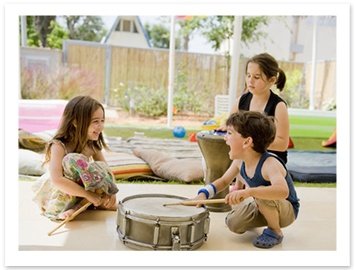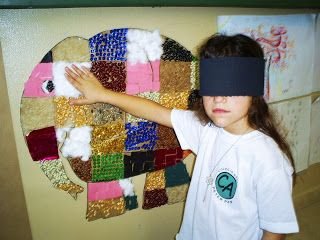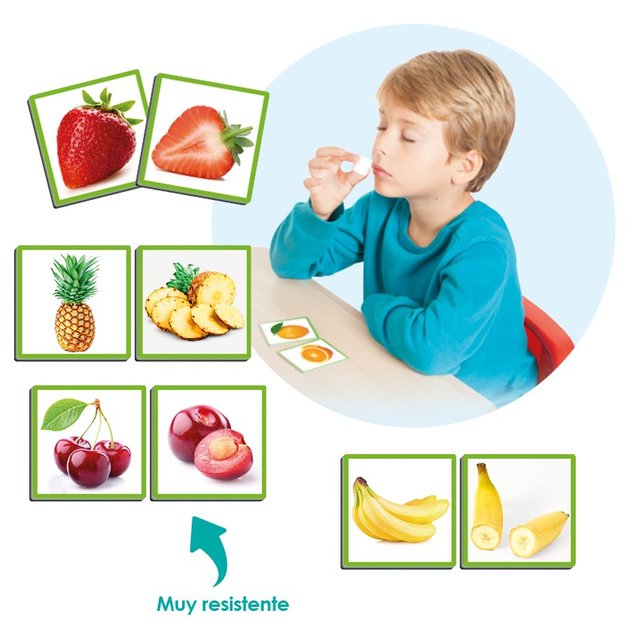An intelligent, healthy and successful child who knows the answer to any adult question is the dream of every mother. But what should you do if your child studies at school once and takes more than an hour to learn? It is not worth waking panic and punishing a student for his carelessness and mistakes, it is necessary to develop his memory.

Source
There is no concrete way to improve the child's memory, since everything depends on the characteristics and abilities of your particular baby. But if you constantly get involved with your child, train him and do special exercises together, in the future there will be no trouble remembering rules and numbers. And vice versa, if everything is left to chance, even a child prodigy with the ability of a genius in two or three years will become a normal average high school student.
Exercises for memory development

Source
Auditory memory
- Remember the words
On a piece of paper, write in a column ten completely unrelated words, but the child does not see them. For example, house, horse, wing, car, a cat, a job, a shop, a computer, a bed, plane. Read everything in order in a slow and calm voice, so you can remember, and ask him to repeat it. From the first time you can remember no more than five words.
Now mentally advise that suggestions be made or that you associate everything with the surrounding objects. In the first case, you can come up with a story that a horse was installed in the house, where a car was. And so on in the same line.
- Remember sounds
Ask the child to close his eyes and hit the table, while observing a certain rhythm. Your baby should repeat what he heard. The main thing is that the so-called melody must be simple and short. By the way, if you manage to play sounds the first time, then you don't have a bad ear and can make music. If you wish, you can try to make noise with different objects (newspaper, book, ball, etc.), and the child will have to do the same manipulations in the same order.
Visual memory

Source
Fix toys
Place ten objects in front of your child (that are cars, if you are engaged with a son, or dolls, if you are with a daughter). Wait a minute for the baby to remember the location of each item, then ask him to leave the room. Change some objects, then ask the child to fix everything as it was. As in the previous case, teach him to associate things with the environment.Looking for differences
Do you remember how you used to look for differences in images in children's magazines? This develops not only memory, but also logical thinking, attention to small details. Print two photos by adding several items. First show the original so that the baby remembers what and how it is in the image, then give it a modified version. If necessary, let me take a look. And if at first he needs your advice, he will do well in the future without your help.
Touch memory

Source
The next stage is the development of tactile memory, which, unfortunately, is forgotten in schools, kindergartens and at home for some reason. In fact, it helps to feel comfortable in the world, to form character and attitude towards others. After all, it is after touching the hot pot that we begin to understand that the next time we take the dishes from the stove should be done with a protector.
What is in the box
Fabric cut, of different texture, in two identical squares. It is better if they are made of leather, leather, silk, linen, that is, completely different to the touch. Glue the first one on a cardboard and sign the names, the second place in the box to make a hand slot. Ask your child to touch, for example, a towel and let him touch the sample. At first, it will be difficult for the baby to find exactly the same piece without seeing it, but in the future, when he develops a tactile memory, he will take care of the task in two ways.Buttons
Place buttons of different sizes and shapes in the box, then ask your child to remove from there, for example, one that has four, and not two holes. The child should not spy at the same time, his task is to trust his feelings.
Olfactory memory

Source
Although the child does not need olfactory memory, it must also be developed in the elementary grades, as it will be useful in the future.
- What kind of vegetables and fruits?
Did you just come home from the store where you bought food for the whole month? Great, it's time to play with your baby! Ask him to close his eyes and take turns smelling apples, oranges, cucumbers and other products with a pronounced smell. In the future, you can switch to a cherry, apricot, cabbage and other less aromatic vegetables and fruits.
If in the first grades memory and attention must develop in a playful way, then older children simply will not be interested. That is why, from an early age, you should attract children to more serious and complex hobbies that will definitely be useful in the future. So, for example, be sure to teach your baby to play chess and checkers.
Or more importantly, don't forget that when you learn something new, you should always repeat the old. Otherwise, unnecessary information will simply be forgotten. But not even all adults can remember in random order the multiplication table or the rule learned in the first grade....
Source for information:
https://www.guiainfantil.com/blog/educacion/aprendizaje/mas-de-20-increibles-ideas-para-mejorar-la-memoria-de-los-ninos/
https://educacion.uncomo.com/articulo/como-mejorar-la-memoria-de-los-ninos-22310.html
https://www.hacerfamilia.com/ninos/noticia-ejercicios-estimular-memoria-ninos-20150414101411.html